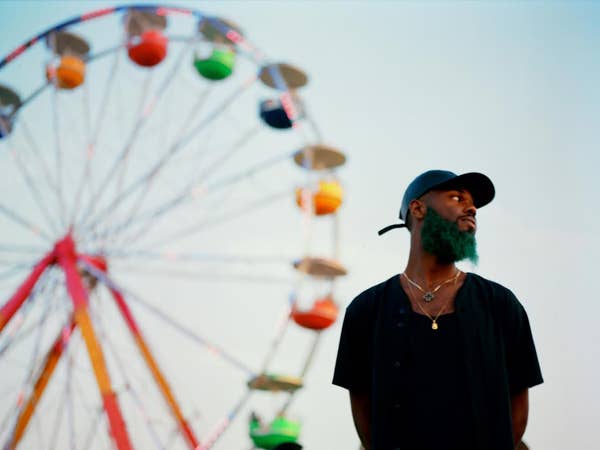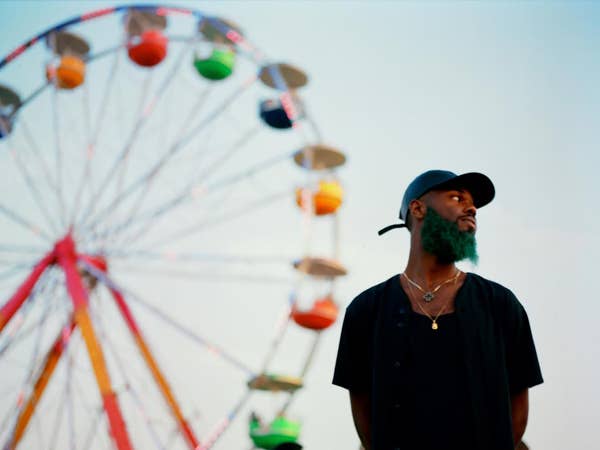1.

By Alaister Moughan
They live online, but rarely appear on radio. They play in underground clubs and bars, but avoid stadiums and concert halls. They are everywhere and nowhere at once, and you and your homies who are keeping up with the blogs already know about them. Let’s call them “SoundCloud artists,” defined by their independence and buzz: Rome Fortune, Tei Shi, and Shy Girls would qualify.
Calling someone a “SoundCloud artist” will likely expire in time, just like the age of the “internet artist” (who isn’t an internet artist these days? Neil Young?), but it’s still relevant for now. What these SoundCloud artists have in common is followers in the tens of thousands and plays in the hundreds of thousands. These numbers, however, dwarf their physical and digital sales. They release their music directly to fans through SoundCloud, and promote it themselves via social media.
For SoundCloud artists, publicity is not a major problem, especially if they have an engaging presence online and, of course, good music. Their large fan bases haven’t come from the dark recesses of the internet, but via reviews, features, reposts, and retweets from your favorite blogs.
But is it a viable and sustainable model? How can they get to the same places as signed and established artists? In terms of online exposure, Services like CD Baby and Tunecore can make your music commercially available on iTunes or Spotify without much difficulty. And although a label might increase your audience or streams, there’s not much money in the royalty game anyway. Nick Susi, the manager for Brooklyn-based Tei Shi, says that royalties from digital sales and streams aggregated across all channels area helpful, but not pivotal, source of income.
He’s not alone: all the managers I spoke to told me touring is the main breadwinner, although the money is far from guaranteed and requires careful management on the road. Touring is expensive and has significant risks, but consistently brings in the most dollars. These SoundCloud artists have the following, the music, and the way to get it out. So why do they need a label? And what does a label, especially a major label, provide?
Online, you might be part of the musical conversation, but a major label will give you a certain status and potentially a megaphone to drown everyone else out. With a label everything’s bigger in terms of production and resources. Larger video budgets and live production allows for a bigger, potentially more engaging show. For someone like Twin Shadow’s George Lewis this extra pizzazz works well (via Stereogum):
“[Labels help with] production in general,” he said. “Live, production in music videos. Financial help with those things. There’s certainly more of that. But more importantly there seems to be a more active support system, generally. There seems to be more feedback. Which I’m really enjoying now.”
Major labels are also great for getting radio or TV appearances. Susi sees access to radio, especially commercial radio, as the dependable strength of major labels. Radio is still a very powerful promotional tool. Part of the massive success of Macklemore, for example, is attributable to his major distribution deal with Warner. On the the importance of mainstream radio play, former Mac Miller manager Benjy Grinberg told the Wall Street Journal, “you can have a successful career without radio. But can you sell 5 million singles on one song? I doubt it. Radio can take you to that next level, and the majors push singles to radio better than anyone.”
Labels, including smaller independents, can also give you international reach. This is where seemingly self-released artists can benefit from smaller label partnerships. Tei Shi, for example, has various label partners in select local and international territories who work on amplifying her online buzz to promote new releases.
Labels can also give you the credibility. If you sign a deal, you become a part of that label’s shared history, and the legitimacy attached. And let’s not forget stability—some still see the ‘crossover’ as essential to make music a full time career. This is the conundrum SoundCloud artists like Rome Fortune face. Speaking to P&P, Rome expressed his worries:
Most buzzing artists in my position sign a deal, proving to people that they will be hearing a lot more of them in the future. You’re almost always taken more seriously because with millions of corporate dollars associated with you, you’re a real business.
But with real money and real investment comes ‘feedback,’ a variety of interested parties with a voice. This is the biggest drawback; a loss of creative control. The music industry’s history is full of label feuds: Azealia Banks, Earl Sweatshirt, Childish Gambino, Jeremih—the list goes on. Rome said his conversations with labels usually stumbled once questions of “sound and style” came up:
It never really ends ideally after that, because I will not agree to being a one-trick pony, that speaks to one demographic, one type of way.
This isn’t just because the music industry may be still the “cruel and shallow money trench” of Hunter S. Thompson’s day, but because with bigger scale, investment and broader means of marketing, you are a business with other stakeholders.
With artist-driven, ground up promotion, engagement is usually non-invasive; a feature, a share, maybe a shoutout. It usually involves new content and feels communal. Conversely, mass marketing through radio, billboards and larger digital campaigns often feels like spam.
But labels are certainly not the dinosaurs they are made out to be. Wide distribution and professional promotion (and professional contacts) do give artists a viable start, but the issue of whether and when to cross over still remains.
The growing popularity of ‘label partnerships’ can also facilitates effective distribution and promotion without getting locked in to a long-term deal. These partnerships are typically on a per-project basis and cover the logistical and promotion aspects of the music, not the creative side. Another critical aspect: the artist can also maintain ownership of their masters.
Building a career does not have to start with a label. Label partnerships have allowed Tei Shi to work towards a potentially bigger release, her debut LP. Taking a relative DIY approach first gives artists time to work out their style, sound, and core fan base with their own tastes in mind. Depending on the artist’s desire and suitability for radio play, the next step for artist and label alike becomes much more informed. A label’s promotional pull and long reach can be utilized in a more considered fashion. A great example is the success of Tinashe’s RCA debut, which followed a string of self-released mixtapes.
Ideally this gives an artist and their management team enough time to grow an audience, play around with sound and style and build a creative image. It’s no coincidence that some of the more recent label feuds come from artists who signed fast, like Azealia Banks and Childish Gambino.
This transition phase lets the artist do their own market testing. Maybe like Chance the Rapper, they have a core fanbase and style that doesn’t necessitate a label. Maybe the artist reaches a ceiling and would be receptive and suitable to a label’s advances. But a self-developed artist can go into this relationship knowing what else they need rather than just being needy.
As your parents once said, sometime it’s better if you wait…

